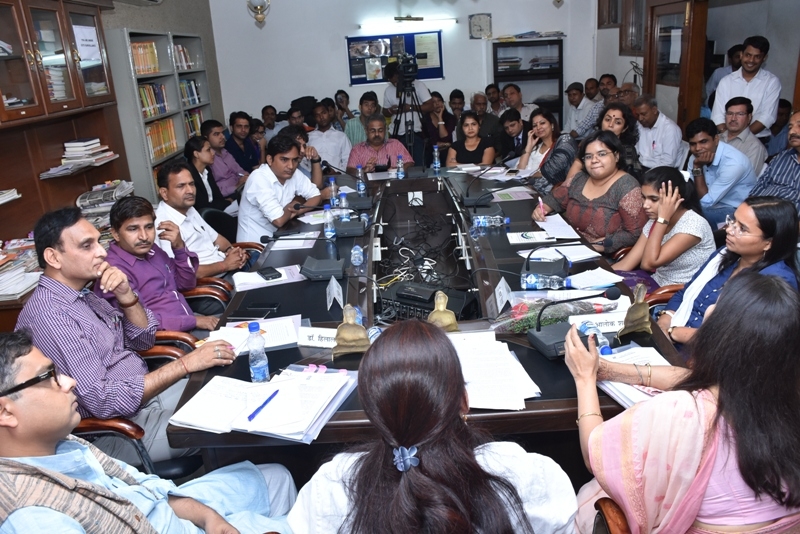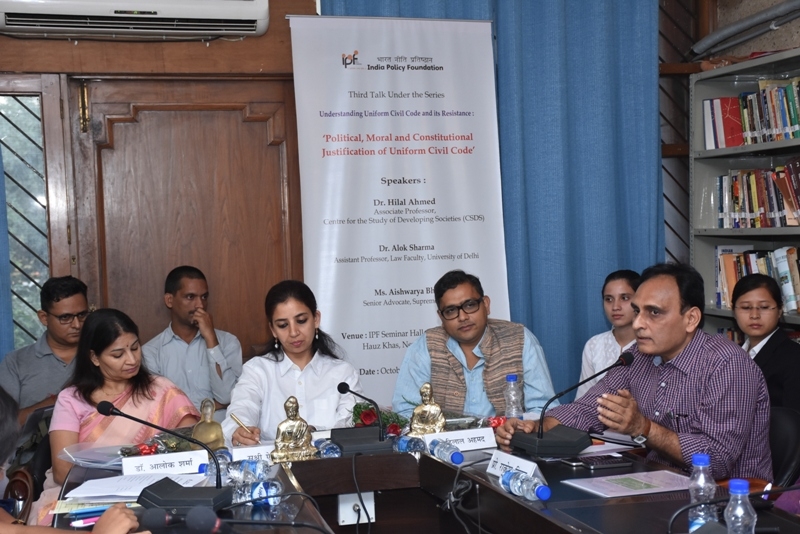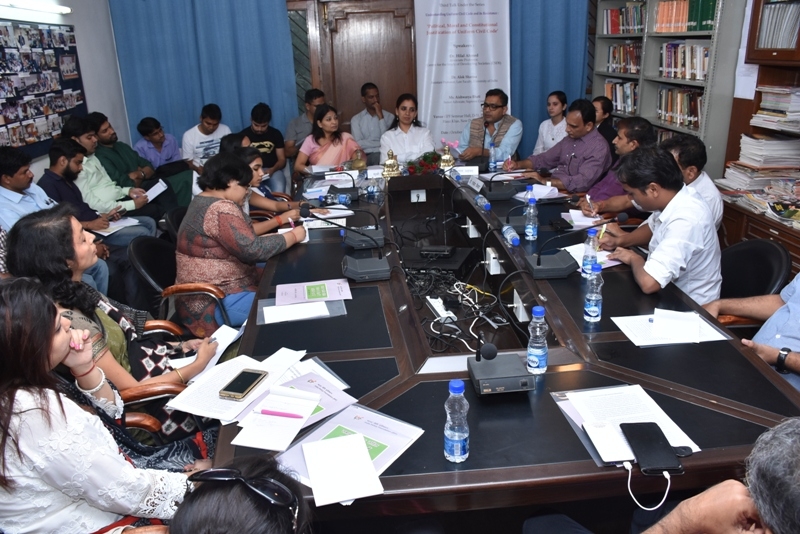Political, Moral And Constitutional Justification Of Uniform Civil Code
Total Views |
October 25, 2016, IPF Seminar Hall, New Delhi
Speakers: Dr.Hilal Ahmed, Associate Professor, CSDS
Dr.Alok Sharma, Assistant Professor, University of Delhi
Ms. Aishwarya Bhati, Senior Advocate, Supreme Court
 On recent developments and debates regarding Uniform Civil Code, India Policy Foundation initiated a serious of seminars discussing various aspects inviting experts and thinkers from various society domains. The seminar series of ‘Understanding Uniform Civil Code and Its Resistance’, organised its third debate on ‘Political, Moral and Constitutional Justification of Uniform Civil Code’.
On recent developments and debates regarding Uniform Civil Code, India Policy Foundation initiated a serious of seminars discussing various aspects inviting experts and thinkers from various society domains. The seminar series of ‘Understanding Uniform Civil Code and Its Resistance’, organised its third debate on ‘Political, Moral and Constitutional Justification of Uniform Civil Code’.In the opening statement, Prof. Rakesh Sinha emphasized on the role of intellectuals in creating an independent ideological thinking, disregarding a war of positions and debate in binaries in society. He opined that since liberal democracy sets the trends of political ideology, UCC should be contextualized through maximizing consensus and minimizing conflicts. Intellectuals and think tanks, thus, have the veryimportant role in maintaining an organic autonomy and pay heed to disagreements without deconstructing social mosaic.

Elucidating on the context of UCC, Dr. Hilal Ahmad, Assistant Professor, CSDS presented its purpose in modern society. With the political and religious differences on, he focused more on a survey conducted by CSDS leading to three issues; 1. secular state versus backward Muslim community, 2. reformed Hindu community versus unreformed Muslim community, and 3.implementation of the UCC.Traveling through various controversies since Shayara Banu case, UCC, Dr. Bilal said,shouldbe seen through the lens of gender justice that can be ensured by an objective enforcement by its stakeholders. He also highlighted the position of law and society and the interrelationshipfor effective governance of Uniform Civil Code, giving statistics to support the arguments.

Dr. Alok Sharma, Assistant Professor, University of Delhi discussed theconstitutional aspects of UCC. Giving a brief history of the initial debates revolving around UCC, she discussed the problems of personal laws of any religion, with emphasis on UCC, finding that such inclusion would only hinder gender equality.
Senior Advocate Aishwarya Bhati opined that uniform code is more about gender equality, dignity, and justice. Many She countries (including Islamic ones) have amended marriage laws to implement UCC.